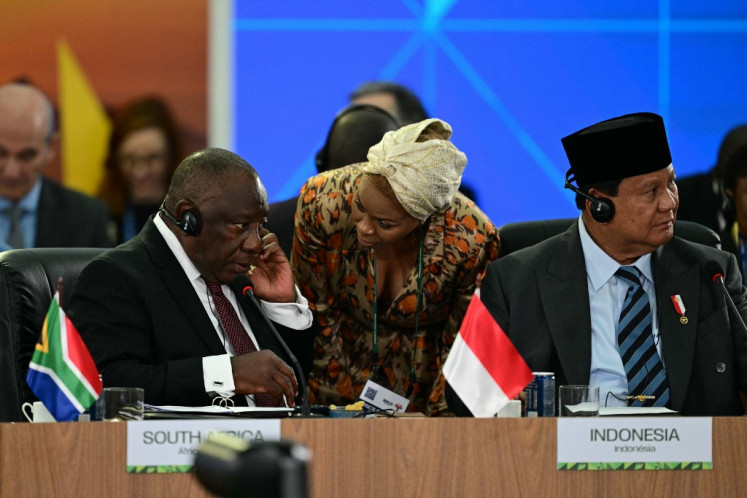Popular Reads
Top Results
Can't find what you're looking for?
View all search resultsPopular Reads
Top Results
Can't find what you're looking for?
View all search resultsPrabowo's toughest challenge: State-corporate crime
Indonesia Corruption Watch reported that corruption cases during Jokowi's era cost the country at least Rp 290 trillion (US$18.7 billion).
Change text size
Gift Premium Articles
to Anyone
T
he political economy perspective has long discussed the relationship between oligarchs and the state (government). Meanwhile, the concept of state-corporate crime (SCC) examines the relationship between the state and oligarchs from a criminological perspective.
SCC is defined as illegal or harmful actions resulting from joint policies and practices between political and economic institutions. Kramer and Michalowski's famously studied SCC in the Iran-Contra scandal, in which the United States government and corporations engaged in illegal arms sales to finance rebel groups.
This concept was further developed by other criminologists in Trusted Criminal: White Collar Crime in Contemporary Society, by David Friedrichs, which highlights how SCC is more difficult to eradicate because of the political and economic forces that protect it
Today SCC is understood as a crime that involves collaboration between the government and private companies in carrying out illegal or unethical actions that harm society, the environment or the public interest. In other words, SCC is an illegal state form hiding within a legal state.
Examples of SCC practices include government projects, concessions or permits granted to certain companies because of bribes or nepotism. SCC is detrimental to the state and creates poverty, injustice, environmental damage, exploitation of workers and human rights violations.
In the Reform era, the end of the military’s dual function also deprived the military of its direct access to economic resources. On the other hand, the business oligarchy and new political elite grew stronger both in wealth and influence.
Even though reforms brought in democratization, SCC has persisted. Unlike in the past when collaboration between the military and conglomerates controlled the economy, in the Reform era collusion between business oligarchs and political elites, which is more subtle but detrimental to the country and the people, prevails.



















